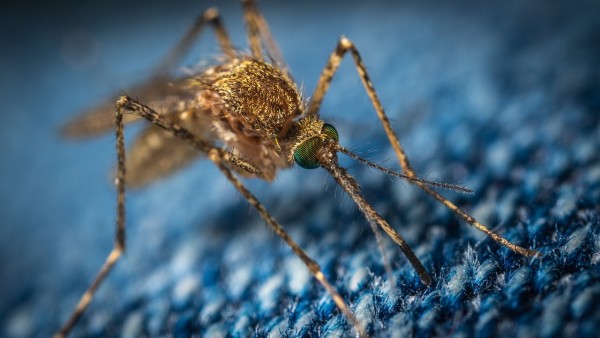Medical Roundup: Genetically Modified Mosquitoes, CRISPR Babies, and Steroids vs. COVID-19
Genetically Modified Mosquitoes to Prevent Mosquito-Borne Diseases
Researchers released genetically modified mosquitoes that carry Wolbachia bacteria into the Indonesian city of Yogyakarta. This resulted in a 75 percent decrease in dengue cases as it prevented the insects from spreading the virus.
Previous studies have shown that infection with these bacteria blocks viral replication (of dengue, Zika, and Chikungunya viruses) within mosquito hosts. Mosquitoes infected with Wolbachia demonstrated that the transgene is significantly more effective at repelling dengue infection.
In the year 2016, Wolbachia-carrying mosquitoes were released in random parts of Yogyakarta. The results show that these areas have 77 percent lower dengue cases compared to areas that did not receive these mosquitoes. Philip McCall, a vector biologist at the Liverpool School of Tropical Medicine, UK, notes that the results hold a huge promise. Researchers have developed laboratory populations of Wolbachia-infected A. aegypti since the 1990s. These results exhibit the strongest evidence yet that the Wolbachia technique may rid the world of deadly mosquito-borne diseases.
LEARN MORE: World's First: Cancer Patient Undergoes Personalized Treatment by 'Cocoon' Platform
Around 60 percent of insect species carry the bacteria, Wolbachia pipientis, which does not naturally infect the Aedes aegypti mosquito species that causes the disease dengue, Zika, and other viruses.
The World Mosquito Program continues to work around Yogyakarta to protect communities against mosquito-borne diseases. The Yogyakarta trial aims to release Wolbachia in the local mosquito population to cover 75 million people at risk of dengue in the next five years, and in a decade, reaching half a billion people.
Scientists Said CRISPR Babies Not Yet Ready
Gene editing technology in human embryos may prevent genetic disorders from being passed from parents to children. However, scientists noted that this technique is still too risky due to the unreliability of science.
Richard Lifton, president of Rockefeller University in New York City, said that the CRISPR technology is not yet ready to be safely and successfully conducted. An international committee was formed in order to be updated with the technological advances and to provide guidelines for its safe utilization.
This committee was formed in 2018, right after Chinese biophysicist He Jiankui announced that he had helped produced twin baby girls with edited human embryos to make humans resistant HIV infection.
A panel of experts from the US National Academy of Medicine, the US National Academy of Sciences, and the UK Royal Society recommended that this technique is currently still too risky to be implanted in embryos. This review is based more on the scientific and technical state of editing heritable gene, rather than the ethical and moral questions.
Inexpensive Steroids May Reduce COVID-19 Mortality
World Health Organization confirms that the use of inexpensive, readily available corticosteroids reduced the risk of COVID-19 death by one-third.
An analysis of patients on five continents showed that the steroid dexamethasone reduces mortality in COVID-19 patients on ventilators.
Jonathan Sterne, at the University of Bristol, UK, and his colleagues analyzed the data pooled from seven clinical trials, which included more than 1,700 people across 12 countries.
The patients were randomly assigned to take either a steroid or a placebo, and the results reveal that the risk of death for those who take steroids is at 32 percent, while those on placebo are at 40 percent risk. This result showed that people who are with severe COVID-19 should have standard steroids incorporated into their treatment.
FIND OUT: Obese Toddlers Tend to Have 'Higher Cardiometabolic Risk' at 11 to 12 Years Old, According to Study
Check out more news and information on Medical Technology on MD News Daily.
Sep 09, 2020 10:14 PM EDT








